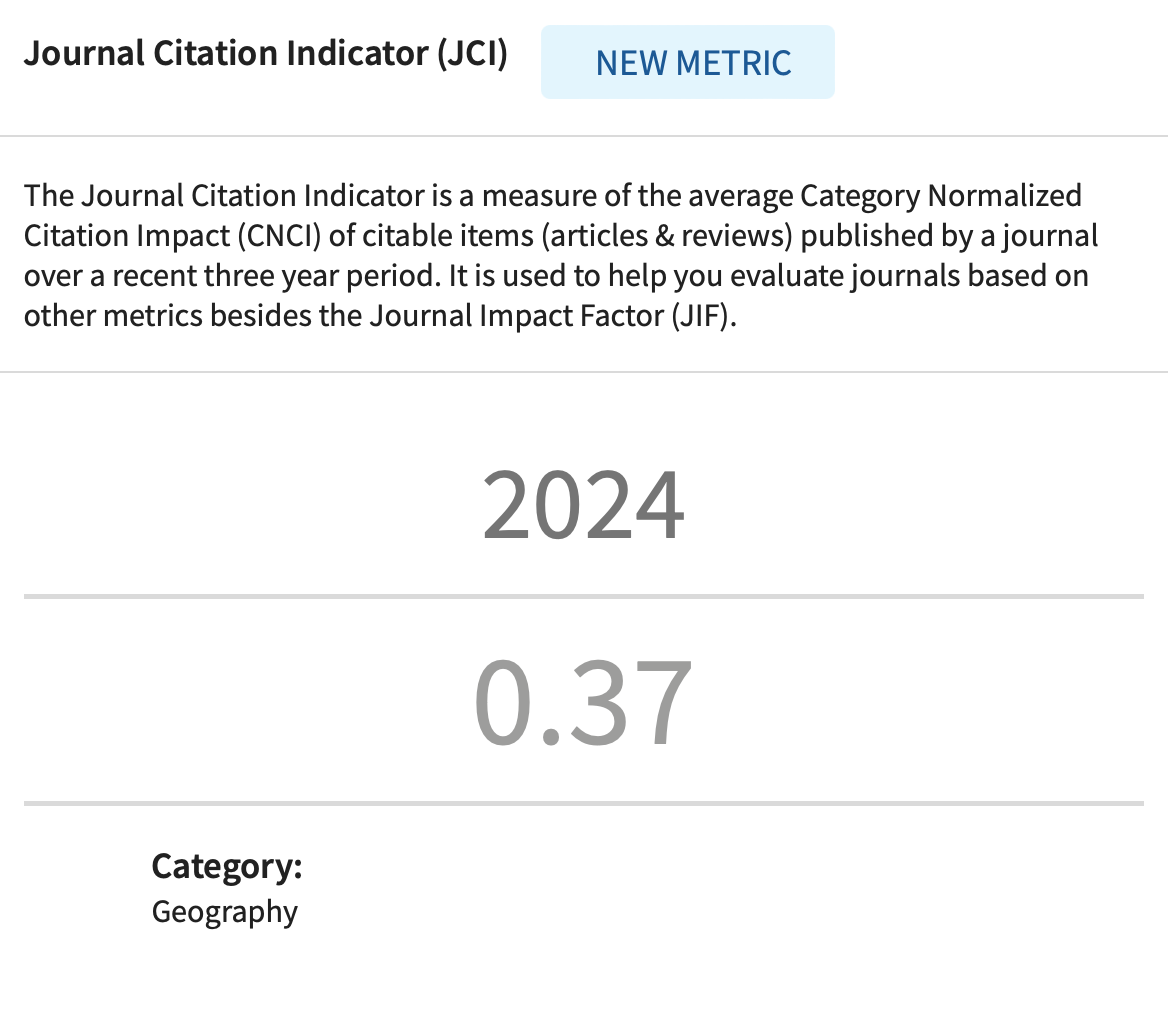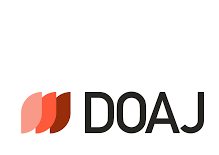FAMILY AS A SOCIAL FACTOR DETERMINING DEMOGRAPHIC TRENDS
DOI:
https://doi.org/10.2298/IJGI2302237MKeywords:
demography, traditional family values, institution of marriage, reproductive behaviorAbstract
Society’s demographic development holds great importance for all social processes: economy, education, science, culture, and others. Therefore, it is important to evaluate the various factors influencing the formation of demographic trends and understand their significance. This paper considers a range of sources influencing the formation of young people's attitudes toward family values, namely: the immediate environment, mass media, media content, literature, social surveys, social advertising, and propaganda, as well as bloggers as a modern element of media communications that has a fairly large influence on the young audience. The paper analyzes Russia’s policy of the demographic problem, which is associated with the currently being implemented Concept of the State Family policy in the Russian Federation until 2025 (The Concept) aimed at strengthening and protecting the family as the fundamental basis of the Russian society. The paper presents the results of mass surveys among the Rostov region youth: 1) on the key points of the Concept the sample included 450 young people aged 20–29 and 2) on the youth’s preferences for various types of mass media with a sample of 634 respondents aged between 16 and 25. It was revealed that the core foundations of the family culture are sufficiently established in the Russian Federation with the dominance of the marriage relations as free, voluntary, and equal association of men and women, which is consistent with the state policy of support and development of family values.
Article metrics
References
Achkasova, K. (2021). Auditoriya media [Media audience; PowerPoint slides]. https://mediascope.net/upload/iblock/cd5/Adindex%20City%20Conference%202021%20Mediascope.pdf
Agovino, M., Cerciello, M., & D'Isanto, F. (2021). Religious participation and attitude towards LGBT+ communities. The case of Italy. Socio-Economic Planning Sciences, 78, Article 101071. https://doi.org/10.1016/j.seps.2021.101071
Antonov, A. I., Karpova, V. M., & Lyalikova, S. V. (2021). Sootnoshenie zhelaemogo i fakticheskogo blagosostoyaniya semej: po dannym sociologo-demograficheskogo oprosa supruzheskih par [The Gap Between Desired and Actual Level of Families Well–Being According to the Results Sociological and Demographic Married Couples Survey]. Living Standards of the Population in the Regions of Russia, 17(1), 121–131. https://doi.org/10.19181/lsprr.2021.17.1.9
Arkhangelskiy, V. N., & Fadeeva, T. A. (2022). Rezervy povysheniya rozhdaemosti v Rossii: k metodike ocenki [Reserves for Increasing the Fertility in Russia: To the Method of Assessment]. Living Standards of the Population in the Regions of Russia, 18(2), 162–176. https://doi.org/10.19181/lsprr.2022.18.2.2
Aslan, F., Şahin, N. E., & Emiroğlu, O. N. (2019). Turkish nurse educators knowledge regarding LGBT health and their level of homophobia: A descriptive–cross sectional study. Nurse Education Today, 76, 216–221. https://doi.org/10.1016/j.nedt.2019.02.014
Astapov, P. (2018, July 2). Pochemu ya chajldfri? [Why am I Childfree?; Video]. YouTube. https://www.youtube.com/watch?v=HpqF52fFe04
Bernardi, L., & Klärner, A. (2014). Social networks and fertility. Demographic Research, 30, Article 22, 641–670. https://doi.org/10.4054/DemRes.2014.30.22
Borisenkov V. P., & Gukalenko O. V. (2014). Institut sem'i i semejnaya politika v sovremennoj ssii: problemy, tendencii i perspektivy [The institution of the family and family policy in modern Russia: Problems, trends and prospects]. Internet-zhurnal “Naukovedenie”, 5(24). https://naukovedenie.ru/PDF/130PVN514.pdf
Calwell, J. C., Caldwell, P., & McDonald, P. (2002). Policy responses to low fertility and its consequences: A global survey. Journal of Population Research, 19(1), 1–24. https://doi.org/10.1007/BF03031966
Danilov, D. (2022, January 29). Statistika razvodov i brakov v Rossii za 2021–2022: tablitsy po godam i regionam [Statistics of divorces and marriages in Russia for 2021–2022: Tables by year and region]. Reytingi i novosti. https://top-rf.ru/places/149-braki-razvody.html?ysclid=le1k965w50730826018
Dekrety Sovetskoj vlasti Tom I. 25 oktyabrya 1917 g. – 16 marta 1918 g. [Decrees of the Soviet Power Volume I. October 25, 1917 – March 16, 1918], M.: Gos. izdat-vo politicheskoj literatury (1957).
Đerčan, B., Sekulić, M., Bubalo Živković, M., Solarević, M., & Lukić, T. (2022). Would you make money giving birth? Tax allowances and economic assistance as measures of population policy in Serbia. Zbornik radova Departmana za geografiju, turizam i hotelijerstvo, 51(2), 111–124. https://doi.org/10.5937/ZbDght2202111D
Dzhumashev, R., & Tursunalieva, A. (2023). Social externalities, endogenous childcare costs, and fertility choice. Journal of Population Economics, 36, 397–429. https://doi.org/10.1007/s00148-021-00885-8
Federal State Statistics Service. (2023). Naselenie Rostovskoi oblasti [Population of the Rostov region]. https://rosinfostat.ru/naselenie-rostovskoj-oblasti/?ysclid=lkqth8u15i920901565
Fond podderzhki detei [The Fund for the Support of Children]. (2022). Sem'ya goda [Family of the Year]. https://www.fond-detyam.ru/vserossiyskiy-konkurs-semya-goda/2022/?ysclid=ljk55t5lgx837160059
Gspurning, J. (2022). Selected aspects of the lifeworld of young women illustrated by the district of South-eastern Styria. Journal of the Geographical Institute “Jovan Cvijić” SASA, 72(3), 291–306. https://doi.org/10.2298/IJGI2203291G
Gustova, N. (2023, March 15). Matkapital-2023: kak potratit' ₽779 tys. na uluchsheniye zhilishchnykh usloviy [Matkapital-2023: How to spend ₽779 thousand on improving housing conditions]. RBK Nedvizhimost'. https://realty.rbc.ru/news/5ffe9ba39a7947ba0505495a
Indikatory rynka nedvizhimosti [Real estate market indicators]. (n.d.-a). Dinamika stoimosti zhil'ya v Moskve na grafike za 10 let v rublyah [Dynamics of the cost of housing in Moscow on the chart for 10 years in rubles]. Indikatory rynka nedvizhimosti. https://www.irn.ru/gd/za-10-let/#begin
Indikatory rynka nedvizhimosti [Real estate market indicators]. (n.d.-b). Indeksy rynka nedvizhimosti [Real estate market indices]. Indikatory rynka nedvizhimosti. https://www.irn.ru/indexes/?ysclid=le4gxcycwm920895796
Kodeks Rossijskoj Federacii ob administrativnyh pravonarusheniyah [Code of the Russian Federation on Administrative Offenses], President of Russia, No. 195-F3, (2001).
Kollontai, A. (1990). Lyubov' i novaya moral'. Filosofiya lyubvi (Čast 2) [Love and the new morality. Philosophy of love (Part 2)]. Politizdat.
Konstituciya Rossijskoj Federacii [Constitution of the Russian Federation]. Eksmo, (1993).
Liu, Y., & Merritt, D. H. (2021). Family routines and child problem behaviors in fragile families: The role of social demographic and contextual factors. Children and Youth Services Review, 129, Article 106187. https://doi.org/10.1016/j.childyouth.2021.106187
Madjevikj, M., Apostolovska Toshevska, B., & Ljakoska, M. (2016). Regional differences in the population natural increase in the Republic of Macedonia. Journal of the Geographical Institute “Jovan Cvijić” SASA, 66(3), 417–431. https://doi.org/10.2298/IJGI1603417M
Martinez, E. Z., Galdino, G., & Zucoloto, M. L. (2023). Perceptions and practices of the Brazilian LGBT+ population toward blood donation. Transfusion and Apheresis Science, 62(2), Article 103578. https://doi.org/10.1016/j.transci.2022.103578
Meca, A., Allison, K., Ayers, K., & Cruz, B. (2023). The role of family cultural values in adolescent health and psychosocial functioning. Encyclopedia of Child and Adolescent Health, 2, 660–669. https://doi.org/10.1016/B978-0-12-818872-9.00068-6
Ministerstva truda i sotsial'noy zashchity Rossiyskoy Federatsii [Ministry of Labour and Social Protection of the Russian Federation]. (2018, August 21). Nacional'nyj proekt “Demografiya” [National Project “Demography”]. Mintrud Rossii. https://mintrud.gov.ru/ministry/programms/demography?ysclid=lee8npngav152902154
O vnesenii izmenenij v postanovlenie Pravitel'stva Rossijskoj Federacii ot 8 iyulya 1997 g. No. 828 i priznanii utrativshimi silu otdel'nyh polozhenij aktov Pravitel'stva Rossijskoj Federacii [Decree of the Government of the Russian Federation “On Amending Decree of the Government of the Russian Federation No. 8 July, 1997, 828 and the Recognition of Certain Provisions of Acts of the Government of the Russian Federation as Invalid”]. Official publication of legal acts, No. 1205. (2021).
Ob uvelichenii gosudarstvennoj pomoshchi beremennym zhenshchinam, mnogodetnym i odinokim materyam, usilenii ohrany materinstva i detstva, ob ustanovlenii vysshej stepeni otlichiya - zvaniya “Mat'- geroinya” i uchrezhdenii ordena “Materinskaya slava” i medali “Medal' materinstva” [Decree of the Presidium of the Supreme Soviet of the USSR dated July 8, 1944 No. 118/11 “On increasing state assistance to pregnant women, large and single mothers, strengthening the protection of motherhood and childhood, on establishing the highest degree of distinction - the title of ‘Mother Heroine’ and the establishment of the Order of Maternal Glory and the Medal of Motherhood”], Electronic fund legal and regulator technical documents, No. 118/11. (1944).
Ob utverzhdenii Koncepciya gosudarstvennoj semejnoj politiki v Rossijskoj Federacii na period do 2025 goda [Concept of the State Family Policy in the Russian Federation until 2025], No. 1618-р. (2014).
Pivovarova, I. V., & Cherepanova, V. N. (2015). Konceptual'naya model' sem'i v processe socializacii lichnosti [Conceptual model of the family in the process of socialization of personality]. Sovremennyye problemy nauki i obrazovaniya, 2(3), 1–9. https://science-education.ru/ru/article/view?id=23431
Polizzi, A., Struffolino, E., & Van Winkle, Z. (2022). Family demographic processes and in-work poverty: A systematic review. Advances in Life Course Research, 52, Article 100462. https://doi.org/10.1016/j.alcr.2022.100462
Ream, G. L. (2019). What's Unique About Lesbian, Gay, Bisexual, and Transgender (LGBT) Youth and Young Adult Suicides? Findings From the National Violent Death Reporting System. Journal of Adolescent Health, 64(5), 602–607. https://doi.org/10.1016/j.jadohealth.2018.10.303
Ro, H., & Khan, M. (2022). The impact of LGBT friendliness on sexual minority customers’ perceptions and intentions to stay. International Journal of Hospitality Management, 102, Article 103181. https://doi.org/10.1016/j.ijhm.2022.103181
Russian Public Opinion Research Center. (2021a, December 2). Sem'ya i deti: ustanovki i realii [Family and children: Attitudes and realities]. VCIOM. https://wciom.ru/analytical-reviews/analiticheskii-obzor/semja-i-deti-ustanovki-i-realii
Russian Public Opinion Research Center. (2021b, March 3). Mediapotreblenie rossiyan: monitoring [Media consumption of Russians: Monitoring]. VCIOM. https://wciom.ru/analytical-reviews/analiticheskii-obzor/mediapotreblenie-rossijan-monitoring
Sansone, D. (2019). LGBT students: New evidence on demographics and educational outcomes. Economics of Education Review, 73, Article 101933. https://doi.org/10.1016/j.econedurev.2019.101933
Scott, J. C., & Pinderhughes, E. E. (2019). Distinguishing between demographic and contextual factors linked to early childhood physical discipline and physical maltreatment among Black families. Child Abuse & Neglect, 94, Article 104020. https://doi.org/10.1016/j.chiabu.2019.05.013
Sergeeva, J. (2019, February 11). Vsya statistika interneta na 2019 god – v mire i v Rossii [All popular statistics for 2019 in the world and in Russia]. WebCanape. https://www.web-canape.ru/business/vsya-statistika-interneta-na-2019-god-v-mire-i-v-rossii/
Sikevich, Z. V., & Possel, Y. A. (2018). Supruzheskie otnosheniya v mezhetnicheskoj sem'e [Marital relations in the interethnic family]. Vestnik of Saint Petersburg University. Sociology, 11(3), 332–345. https://doi.org/10.21638/spbu12.2018.305
Simeunović Bajić, N., Terzić, A., & Milovanović, I. (2020). Inter-ethnic marriages among antagonistic nations: Positive media discourse about Albanian women and Serbian men. Journal of the Geographical Institute “Jovan Cvijić” SASA, 70(2), 145–161. https://doi.org/10.2298/IJGI2002145S
Sobotka, T. (2009). European Fertility Trends and Prospects. https://www.un.org/en/development/desa/population/events/pdf/expert/15.5/Sobotka.pdf
Tashcheva, A. I., Bedredinova (Gridneva), S. V., Stefanenko, T. G., & Tikhomandritskaya, O. A. (2016). Etnicheski smeshannye braki skvoz' prizmu fenomena udovletvorennosti supruzhestvom [Ethnically Mixed Marriages through the Phenomenon of Marriage Satisfaction]. Russian Psychological Journal, 13(3), 39–52. https://doi.org/10.21702/rpj.2016.3.3
The State Duma. (2018). Overview of the Legislative Process in the Russian Federation. The State Duma.
TNT Smotri yeshche. (2023, January 4). Zhenskiy stendap: Zoya Yarovitsyna - ekonomnyye lyudi [Female stand-up: Zoya Yarovitsyna - economical people; Video]. YouTube. https://www.youtube.com/watch?v=5sF_kSI_5JU
Tolstoy, L. (1911). Zhivoj trup [The Living Corpse]. Artistic literature.
Zhang, J. (2020). Influence of Parenting Costs on Second-Child Fertility Anxiety Among Adults of Childbearing Age in China: The Moderating Role of Gender. SAGE Open, 10(2). https://doi.org/10.1177/2158244020920657
Zhang, W., Pu, J., He, R., Yu, M., Xu, L., He, X., Chen, Z., Gan, Z., Liu, K., Tan, Y., & Xiang, B. (2022). Demographic characteristics, family environment and psychosocial factors affecting internet addiction in Chinese adolescents. Journal of Affective Disorders, 315, 130–138. https://doi.org/10.1016/j.jad.2022.07.053
Zhou, P. P., Wu, M.-Y., Filep, S., & Weber, K. (2021). Exploring well-being outcomes at an iconic Chinese LGBT event: A PERMA model perspective. Tourism Management Perspectives, 40, Article 100905. https://doi.org/10.1016/j.tmp.2021.100905
Downloads
Published
How to Cite
Issue
Section
License
Copyright (c) 2023 Journal of the Geographical Institute “Jovan Cvijić” SASA

This work is licensed under a Creative Commons Attribution-NonCommercial-NoDerivatives 4.0 International License.











